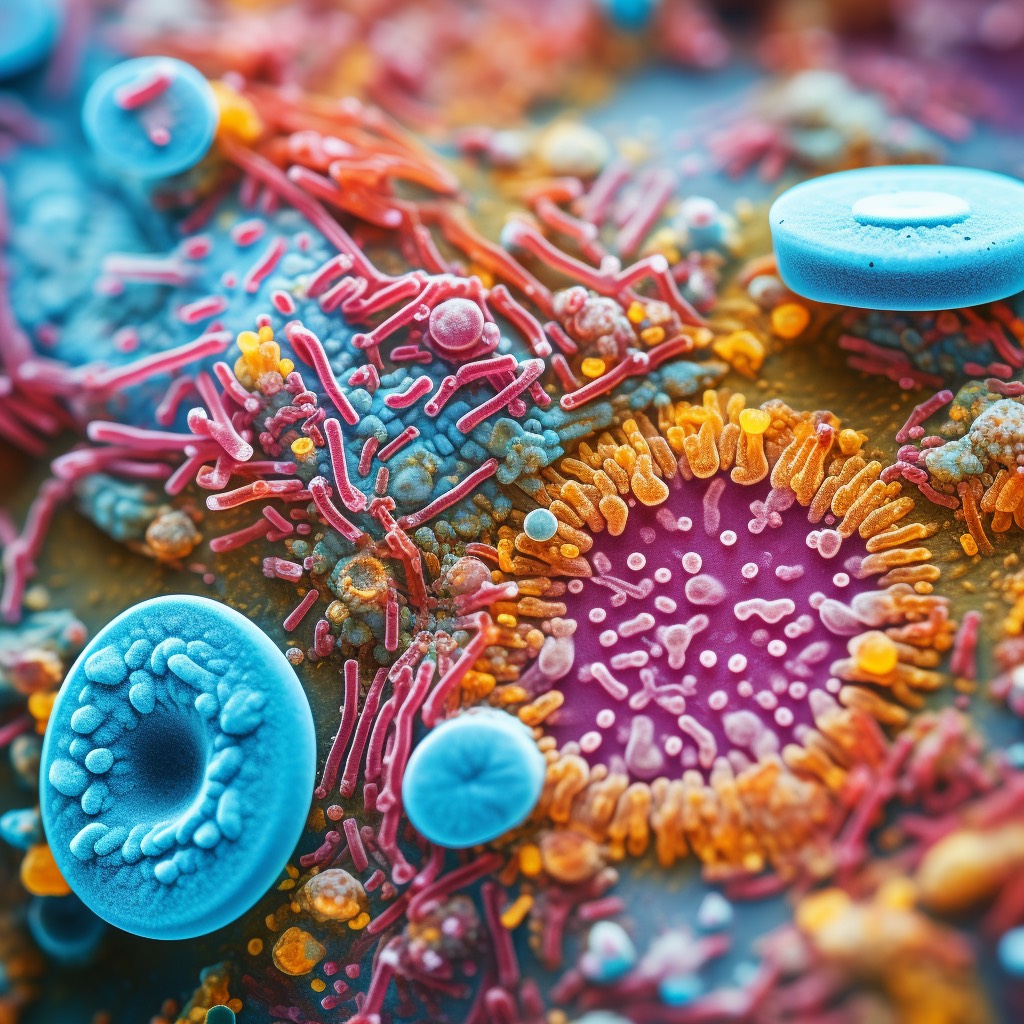The gut-brain connection, an intricate and fascinating network of communication between the gut and the brain, has been the subject of growing scientific interest.
Emerging research highlights the profound impact of this connection on our physical health, mental well-being, and overall quality of life.
In this article, we delve into the secrets of the gut-brain connection, exploring its significance, mechanisms, and implications for our holistic well-being.
Traditionally seen as a system responsible for digestion and nutrient absorption, the gut is now recognized as a complex ecosystem with a vast array of microbes collectively known as the gut microbiota.
These microorganisms play a vital role in various bodily functions, including immune function, metabolism, and brain health.
The gut is also home to the enteric nervous system (ENS), often referred to as the “second brain,” which communicates with the central nervous system (CNS) in the brain.
The gut and brain communicate bidirectionally through a sophisticated network of nerves, hormones, and biochemical signaling pathways.
This communication occurs via the vagus nerve, which connects the ENS and the CNS, as well as through the release of neurotransmitters, immune molecules, and other signaling molecules.
This bidirectional flow of information influences not only our physical processes but also our emotions, mood, and cognition.
Scientific studies have revealed a strong correlation between gut health and mental health.
Imbalances in the gut microbiota, known as dysbiosis, have been linked to conditions such as depression, anxiety, and even neurodegenerative disorders like Alzheimer’s disease.
The gut microbiota produce various compounds, including neurotransmitters like serotonin and gamma-aminobutyric acid (GABA), which play crucial roles in mood regulation.
Disruptions in the gut-brain axis can affect the production and availability of these neurotransmitters, impacting our emotional well-being.
The gut-brain connection not only affects mental health but also has implications for physical health.
Chronic inflammation in the gut can lead to systemic inflammation, which has been associated with conditions like obesity, diabetes, cardiovascular disease, and autoimmune disorders.
Additionally, the gut microbiota contribute to the regulation of the immune system, playing a crucial role in maintaining a balanced immune response.
Imbalances in the gut microbiota have been linked to increased susceptibility to infections, allergies, and autoimmune conditions.
The secrets of the gut-brain connection unveil a profound interplay between our gut health and our overall well-being.
This intricate communication network highlights the significant impact of the gut on our mental and physical health.
Understanding and nurturing this connection can have transformative effects on our holistic well-being.
The recognition that the gut is more than just a digestive organ has paved the way for groundbreaking research into the gut microbiota and the enteric nervous system.
The gut microbiota, consisting of trillions of microorganisms, influence our health in numerous ways.
They produce essential compounds, regulate our immune system, and even impact our brain chemistry.
The enteric nervous system, often referred to as the “second brain,” serves as a direct link between the gut and the brain, facilitating bidirectional communication.
The communication between the gut and the brain occurs through various pathways, including the vagus nerve and the release of signaling molecules.
This intricate exchange of information influences not only our physical processes but also our emotional well-being and cognitive function.
Dysregulation within this connection has been associated with mental health disorders such as depression, anxiety, and neurodegenerative diseases.

The influence of the gut-brain connection extends beyond mental health and encompasses physical well-being as well.
Chronic inflammation in the gut can lead to systemic inflammation, contributing to various health conditions like obesity, diabetes, and cardiovascular disease.
Moreover, imbalances in the gut microbiota have been linked to a dysregulated immune response, making individuals more susceptible to infections, allergies, and autoimmune disorders.
Fortunately, there are steps we can take to support and optimize the gut-brain connection for our well-being.
Nurturing a healthy gut microbiota through a balanced diet rich in fiber, prebiotics, and probiotics can promote microbial diversity and enhance gut health.
Regular exercise, stress management techniques, and sufficient sleep also play a crucial role in supporting a healthy gut-brain axis.
Furthermore, emerging therapies such as psychobiotics, which involve using specific strains of beneficial bacteria to target mental health conditions, hold promise in harnessing the power of the gut-brain connection.
Research in this field is providing new insights into the potential of personalized interventions that target the gut microbiota to improve mental health outcomes.
In conclusion, the secrets of the gut-brain connection reveal a profound interdependence between our gut and our overall well-being.
This connection influences our mental health, physical health, and overall quality of life.
By nurturing our gut health, fostering a diverse and balanced gut microbiota, and adopting a holistic approach to well-being, we can unlock the transformative potential of the gut-brain connection.
Embracing this understanding empowers us to take charge of our health and embark on a journey toward optimal wellness and vitality.


